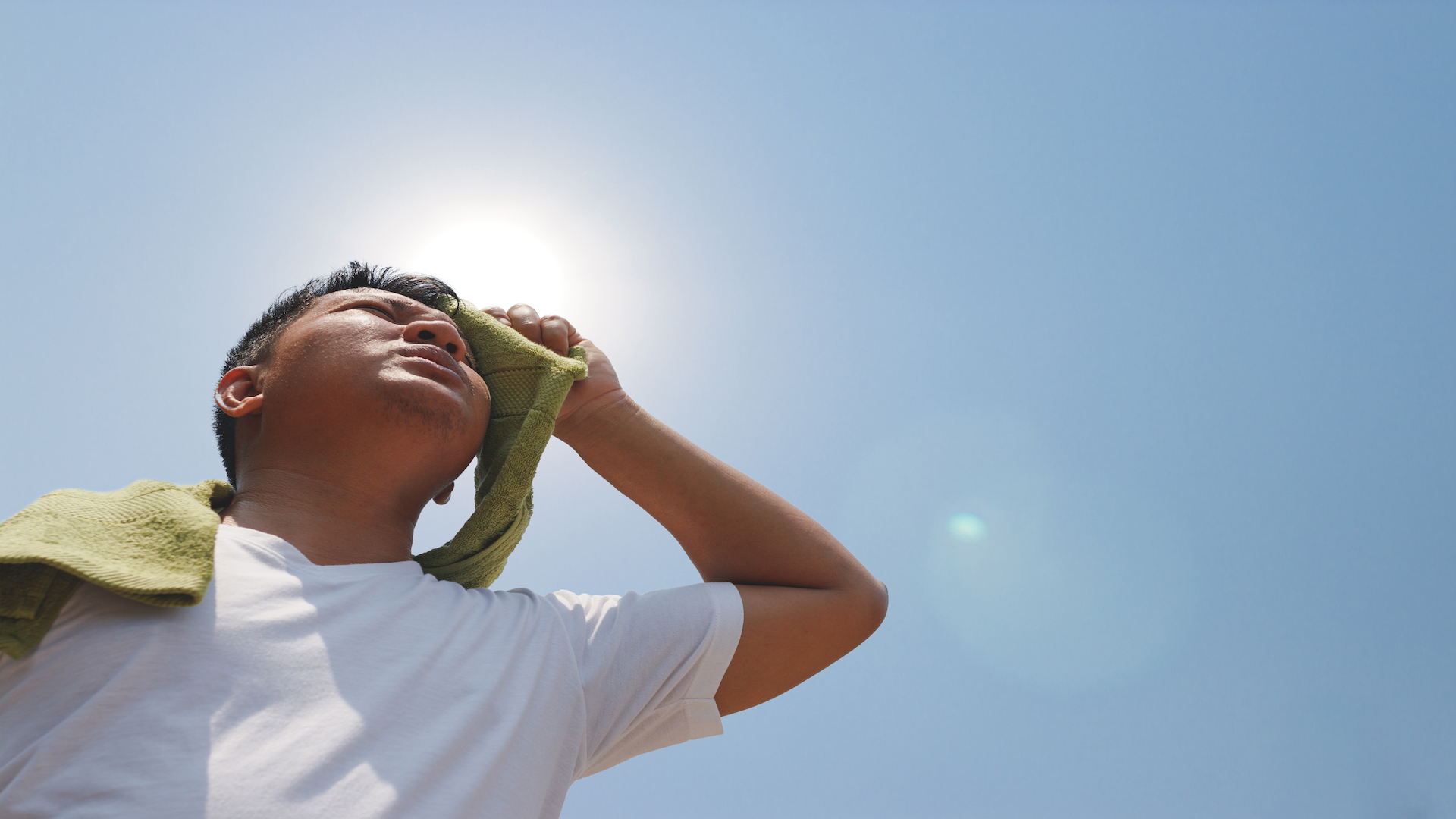What Is Heat Exhaustion?
Reference Article: Facts about heat exhaustion.

Heat exhaustion is a medical condition caused by elevated body temperature. It's one of the most severe types of heat illnesses, surpassed only by heat stroke, as described in a chapter of Elsevier's online "Handbook of Clinical Neurology" (Elsevier B.V., 2019). All heat illnesses have the same cause: exposure to high temperatures, especially when humidity is also high, and particularly when a person's fluid intake is inadequate or they're exerting themselves.
Heat exhaustion is often characterized by profuse sweating, headache, dizziness and a weak, rapid heartbeat. The presence of certain additional signs and symptoms, such as nausea or vomiting, muscle cramps, fatigue or weakness, fainting, decreased urine output and cold, pale and clammy skin may also indicate heat exhaustion.
How is heat exhaustion treated?
Treating suspected heat exhaustion promptly is essential because it can be a precursor to heat stroke, a potentially fatal condition in which body temperature rises to 106 degrees Fahrenheit (40 degrees Celsius) or higher, according to MedlinePlus. The mortality rate for heat stroke is around 10%, but even when not deadly, the condition can cause severe complications such as malfunctions in the central nervous system that can lead to seizures and rhabdomyolysis (the pathological breakdown of muscle tissue), which can cause kidney failure.
Progression from heat exhaustion to heat stroke is sometimes gradual, but may also occur suddenly; the condition won't go away on its own if the factors that caused it are still present — action needs to be taken to reduce body temperature, according to the Mayo Clinic. Moving to a cooler location, limiting physical activity, loosening or removing articles of clothing, taking a cool bath or shower, sipping cool beverages and applying cool, wet cloths to the skin may help. If a person is throwing up, symptoms are worsening, or symptoms have been present for more than one hour, medical attention is needed. If you suspect that someone is experiencing heat stroke, which is characterized by dizziness, nausea, headache, and a strong and rapid pulse, skin that's hot and red, confusion or loss of consciousness, call 911 immediately.
Who is at risk of heat exhaustion?
Anyone can get heat exhaustion, but certain populations are more at risk, including people who are elderly, very young or ill. Some medications, such as those that act on certain neurotransmitters (specifically, this applies to many antidopaminergic or anticholinergic medications, such as some psychiatric medications — ask your doctor if your medication falls into one of these categories) and those that increase fluid loss (such as diuretics), can also reduce the body's ability to regulate its temperature normally.
Heat exhaustion can be a recreational hazard, especially for athletes playing sports outdoors while wearing heat-trapping clothing and gear when temperatures are high, such as the case in American football. Small studies have aimed to design more breathable football uniforms, but heat-related illnesses in football players and other sports participants remain a concern. The risk of heat exhaustion may be elevated in "weekend warriors" who aren't conditioned to work out in hot weather, but even elite athletes can be affected by heat-related illnesses.
Travelers headed to hot destinations also need to be mindful of heat-related disorders. For example, cases of heat exhaustion spike in people undertaking the Hajj, Muslim pilgrimage to Mecca, Saudi Arabia, a pilgrimage that occurs during the hottest months often when temperatures are higher than average, as reported in the journal BioMed Research International.
Get the world’s most fascinating discoveries delivered straight to your inbox.
Even casual vacationers planning much less physically demanding trips can be at risk, especially if they aren't prepared with proper attire or if they're consuming alcoholic beverages, which can cause dehydration. High humidity raises the danger associated with high temperatures because it reduces the body's ability to cool itself via sweating, which is another aspect to consider before embarking on a tropical getaway.
For some, heat exhaustion is an occupational hazard; particularly for workers who are outdoors for long periods of time on hot days. In the United States, the National Institute for Occupational Safety and Health has issued an evidence-based reference for on-the-job exposure to high temperatures. For example, studies with sugarcane harvesters (including one in the American Journal of Industrial Medicine), and miners (including one in the journal Occupational and Environmental Medicine) have found heat exhaustion to be a serious risk for those occupations.
Heat-related illnesses such as heat exhaustion are also more likely to affect people of lower income, who may be more likely to work in dangerously hot environments or may be unable to afford air conditioning at home. In 2003, a heat wave in Western Europe caused an immense death toll, possibly exceeding 70,000 people, according to a study published in the journal Comptes Rendus Biologies. Half of those people died in their own homes.
Heat exhaustion and climate change
Because it contributes to an increase in the frequency and severity of extreme weather events, including heat waves, climate change may increase the risk of heat exhaustion around the world, as an archived article by the Environmental Protection Agency explains. Climate change has already been linked to record-breaking heat waves around the world, exemplified by the recently reported all-time high temperatures in parts of Australia.
But heat exhaustion is treatable and can often be prevented — so be sure to share this information with anyone who may be at risk.
Additional resources:
- Check out this helpful infographic for understanding the signs and symptoms of heat illness from the CDC.
- Find out more about other types of heat illnesses from the University of Rochester Medical Center.
- Pets can be vulnerable to heat-related illnesses, too — check out this resource from VCA Animal Hospitals.
This article is for informational purposes only, and is not meant to offer medical advice.



